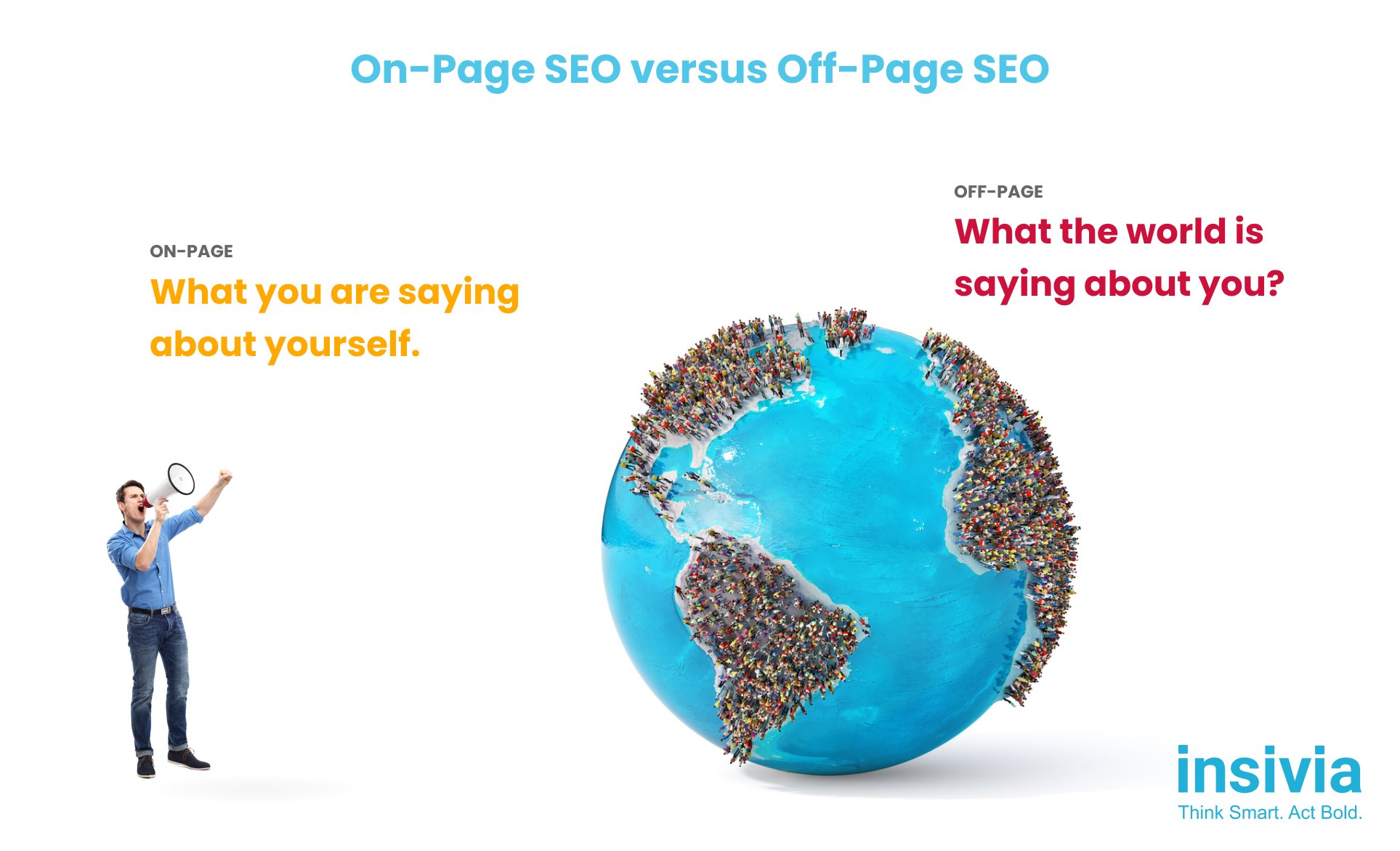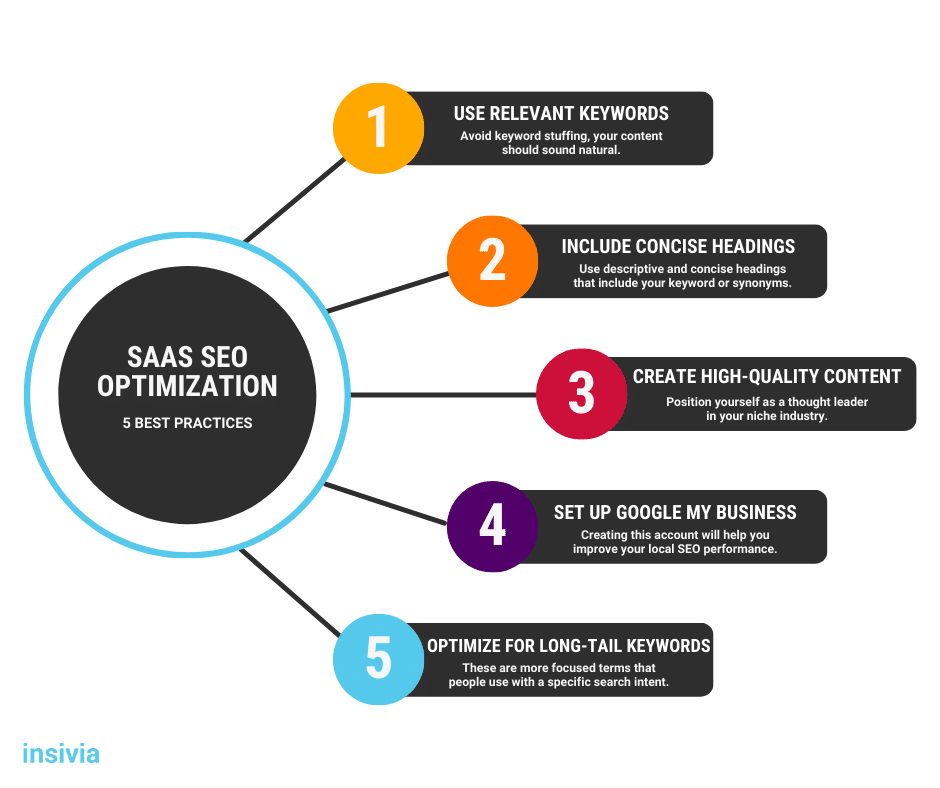Search engine optimization (SEO) refers to the practice of optimizing your website and its content to increase visibility and ranking on search engine result pages (SERPs). SEO is important for SaaS businesses since it can significantly help increase organic traffic to your website, which can lead to more sign-ups, subscriptions, and revenue.
81% of searchers click on organic results on Google. So, you want to make sure you’re performing well on the SERP.
One of the biggest reasons that SaaS companies should take their SEO seriously, is conversion rates.
Traffic from search is proven to have significantly higher conversion rates than other channels particularly advertising. The main reason for this is: intent.
A person that is searching to solve a problem or find a solution to a problem has intent and when they find the answer to that search, they are already in a place mentally to want to convert and solve their need.
What are the different types of SEO?
At a basic level, there are two main types of SEO: “On-Page SEO” and “Off-Page SEO“.
- On-page SEO refers to the optimization of elements on your website, such as content, meta tags, and headers.
- Off-page SEO, on the other hand, refers to activities that take place outside of your website, such as link building and social media marketing.
One analogy, we have always liked to use is that On-Page SEO is what you are saying about yourself and Off-Page SEO is what others are saying about you.
Both types of SEO strategies are extremely important and tend to go hand-in-hand with one another. Your content strategy should be purposeful and contribute to your goals for both initiatives. Create blog posts that will show up as a strong resource in organic search. Seek link-building opportunities on relevant and authoritative pages in your niche industry.
Post high-quality content on your social media that’s shareable and captivating to your audience. These are all components you should take into consideration for your content marketing strategy in order to boost your SaaS SEO performance.

It is important to note that over the years, ranking in search engines has become a lot more about what others are saying about you. The reason for this is that as companies figured out how to game the search engines and SEO optimization and consulting became a thing, Google had to rely more on what they outside world said.
SEO Elements Table
What are the primary elements of on-page SEO, and how can they be optimized?
The primary elements of on-page SEO include the following:
- Content: Ensure that your website’s content is high-quality, relevant, and informative.
- Meta tags: Optimize your website’s meta tags, including the title tag, description tag, and header tags. Make sure your target keyword or its synonyms are included in this portion of your content.
- Strong Titles & Headings: Make sure that your title is eye-catching and also includes your target keyword in some way. You want to make your title and headings entice the reader to have the urge to read more of your content.
- URLs: Use descriptive and concise URLs that accurately reflect the content on the page.
- Images: Optimize your website’s images by using descriptive file names and alt text.
- Internal links: Use internal links to help search engines understand the structure of your website and how your pages are related. Think of this as the map for all of your pieces of content. This also helps visitors discover new pages on your website and then they can easily learn more about your business and other offerings you provide.
To optimize these elements, you should conduct keyword research to identify the most relevant and popular keywords in your industry, and then incorporate them into your website’s content and meta tags. Understand your audience’s search intent and decipher which keywords are utilized the most. Then, you can optimize your content around those keywords and as a result, gain more traction and visibility for your SaaS business.
How can SaaS businesses conduct keyword research to optimize their SEO efforts?
To conduct keyword research, SaaS businesses can use tools such as Google Keyword Planner, SEMrush, and Ahrefs. Start by brainstorming a list of keywords and phrases that are relevant to your business, and then use these tools to find related keywords, as well as information on search volume, competition, and cost-per-click.
These keyword research tools can be a vital resource for optimizing your SEO process and narrowing down the most logical words your business should hone in on. You can also look into where direct competitors are ranking well and try to locate areas where you can compete to rank for those keywords on Google search engines.
You have to be strategic with the search terms you utilize because depending on your industry and services, you want to make sure that you choose a search term that coincides with a search query your audience will potentially use.
How can SaaS businesses optimize their website’s content for search engines?
To optimize your website’s content for search engines, you should follow these best practices:

- Use relevant keywords in your content, but avoid keyword stuffing. You still want to ensure that your content is beneficial for the reader and sounds natural. Never let the user experience suffer because you’re solely trying to focus on SEO.
- Use descriptive and concise headlines and subheadings. Include keywords, but also make sure the headings are helpful for the reader to scan and navigate your content in a way where it’s scannable.
- Make sure your content is high-quality, relevant, and informative. Don’t make content for the sake of content. Position yourself as a thought leader in your industry and be an educational voice for your product or service.
- Set up a Google My Business account to improve your local SEO as 89% of people search for local businesses at least once a week.
- Optimize your content for long-tail keywords. These are more focused, less general keywords that may have a lower volume, but the people that search them have a specific purchase intent. Roughly 70% of all website traffic comes from long tail keywords. Plus, they’re less competitive to rank for compared to shorter, more generalized key terms.
What are some effective link-building strategies for SaaS businesses?
Link-building is a critical component of off-page SEO, helping to increase your site’s authority and improve its rankings on search engines. For SaaS businesses, here are some effective link-building strategies:
1. Creating High-Quality, Shareable Content
Content is king in the world of SEO. By producing high-quality, informative, and engaging content, you can naturally attract backlinks. Focus on creating content that provides real value to your audience, such as:
- In-Depth Guides and Tutorials: Comprehensive articles that thoroughly cover a specific topic.
- Industry Research and Reports: Original research or data-driven reports that others in your industry will want to reference.
- Infographics: Visual content that simplifies complex information, making it easy to understand and share.
- Case Studies: Detailed analyses of how your product has helped customers solve problems.
2. Guest Posting on Relevant Blogs and Websites
Guest posting involves writing articles for other blogs and websites within your industry. This strategy not only helps you gain backlinks but also positions you as an expert in your field. To maximize the benefits:
- Identify High-Authority Sites: Target blogs and websites with high domain authority and relevance to your niche.
- Provide Value: Offer unique insights and actionable advice in your guest posts.
- Include a Link: Ensure that your bio or the content itself includes a link back to your site.
3. Reaching Out to Influencers
Influencer outreach involves connecting with influential figures in your industry and asking them to share or link to your content. This can be particularly effective if the influencer has a large and engaged following. To succeed:
- Build Genuine Relationships: Engage with influencers on social media and share their content before asking for a favor.
- Offer Value: Provide something of value in return, such as featuring them in your content or offering a free trial of your product.
- Be Direct and Polite: Clearly explain why your content is valuable and how it would benefit their audience.
4. Building Relationships with Industry Peers
Forming partnerships with other businesses in your industry can lead to mutual link-building opportunities. This strategy involves:
- Networking: Attend industry events, join online forums, and participate in relevant communities.
- Collaborating on Content: Co-author articles, conduct joint webinars, or create shared resources.
- Requesting Links: Politely ask for a link to your content if it adds value to their audience.
5. Get listed on relevant directories
Industry-specific directories and review sites can provide valuable backlinks. These platforms often have high domain authority and can drive targeted traffic to your site. To utilize this strategy:
- Identify Relevant Directories: Find directories that cater to your target industry.
- Submit Accurate Information: Ensure your business information is accurate and up-to-date.
- Encourage Reviews: Ask satisfied customers to leave positive reviews, which can enhance your profile’s credibility.
What are some technical SEO considerations for SaaS businesses?
Technical SEO focuses on optimizing your website’s infrastructure to improve its visibility and performance on search engines. For SaaS businesses, key technical SEO considerations include:
1. Ensuring Mobile-Friendliness and Responsiveness
With the increasing use of mobile devices for browsing, having a mobile-friendly website is essential. Ensure that:
- Responsive Design: Your site adapts seamlessly to different screen sizes and devices.
- Mobile Usability: All interactive elements, such as buttons and forms, are easy to use on mobile devices.
- Speed Optimization: Mobile pages load quickly, providing a smooth user experience.
2. Optimizing Website Loading Speed
Page speed is a crucial ranking factor. Slow-loading pages can lead to higher bounce rates and lower user satisfaction. To optimize loading speed:
- Compress Images: Use image compression tools to reduce file sizes without compromising quality.
- Minimize HTTP Requests: Reduce the number of elements on a page that require HTTP requests.
- Use Content Delivery Networks (CDNs): Distribute your content across multiple servers to reduce load times for users in different geographic locations.
- Leverage Browser Caching: Enable browser caching to store static resources, reducing the need for repeated downloads.
3. Using Structured Data
Structured data helps search engines understand your site’s content better, potentially enhancing your visibility with rich snippets in SERPs. Implementing structured data involves:
- Schema Markup: Use schema.org markup to provide detailed information about your pages.
- Rich Snippets: Enhance your listings with additional information like ratings, reviews, and product details.
- Testing and Validation: Use tools like Google’s Structured Data Testing Tool to ensure your markup is correctly implemented.
4. Ensuring SEO-Friendly URLs
Well-structured URLs contribute to better user experience and search engine understanding. To make your URLs SEO-friendly:
- Descriptive and Concise: Use clear and descriptive keywords that reflect the page’s content.
- Consistent Structure: Maintain a consistent URL structure across your site.
- Avoid Special Characters: Use hyphens to separate words and avoid underscores and other special characters.
- Canonical URLs: Implement canonical tags to avoid duplicate content issues and consolidate link equity.
5. Ensuring Crawlability and Indexability
Make sure search engines can easily crawl and index your site. Key practices include:
- Robots.txt: Properly configure your robots.txt file to guide search engine crawlers.
- XML Sitemaps: Create and submit an XML sitemap to help search engines find and index your pages.
- Fix Broken Links: Regularly check for and fix broken links that can impede crawling and negatively impact user experience.
- Use of Redirects: Implement 301 redirects for moved or deleted pages to maintain link equity and avoid 404 errors.
How can SaaS businesses measure the success of their SEO efforts?
SaaS businesses can measure the success of their SEO efforts by tracking metrics such as organic traffic, keyword rankings, and conversion rates. Tools such as Google Analytics, SEMrush, and Ahrefs can help you track these metrics and identify areas for improvement.
In addition to the metrics mentioned above, there are other key performance indicators (KPIs) that SaaS businesses can track to measure the success of their SEO efforts such as:
- Backlinks: Backlinks are an important factor in SEO, as they signal to search engines that other websites consider your content to be valuable and relevant. SaaS businesses can track the number and quality of backlinks they earn over time to measure the success of their link-building efforts.
- Bounce rate: Bounce rate refers to the percentage of visitors who leave your website after viewing only one page. A high bounce rate can indicate that your website is not engaging or relevant to your target audience, which can negatively impact your SEO.
- Time on page: This metric measures how long visitors spend on each page of your website. A high average time on a page can indicate that your content is engaging and relevant, which can positively impact your SEO.
- Click-through rate (CTR): CTR measures the percentage of people who click on a link to your website after seeing it on a search engine results page (SERP). A higher CTR can indicate that your website is more appealing and relevant to search engine users, which can positively impact your SEO.
To effectively measure the success of their SEO efforts, SaaS businesses should set specific goals and KPIs and regularly monitor and analyze their website and traffic data. They should also conduct regular SEO audits to identify areas for improvement and optimize their strategy accordingly. By tracking and analyzing these metrics, SaaS businesses can ensure that their SEO efforts are driving meaningful results and helping them achieve their business objectives.
How can SaaS businesses use social media to improve their SEO?
SaaS businesses can use social media to improve their SEO performance in a few different ways:
- Increase visibility: By regularly posting and engaging with followers on social media platforms, SaaS businesses can increase their online visibility and attract more traffic to their websites. This increased visibility can lead to more backlinks, shares, and engagement, all of which can positively impact your SEO.
- Social signals: Social media engagement, such as likes, shares, and comments, can act as social signals for search engines. The more engagement your social media content receives, the more likely it is that search engines will view your website as high-quality and relevant, leading to improved rankings on SERPs.
- Content promotion: Social media is a great way to promote your website’s content and attract more traffic to your website. By sharing your blog posts, infographics, and other content on social media platforms, you can reach a wider audience and increase your chances of earning backlinks and shares.
- Influencer marketing: Collaborating with influencers in your industry on social media can help you reach a wider audience and improve your online reputation. When influencers share your content or mention your brand on social media, it can lead to more visibility and traffic for your website, which can positively impact your SEO.
To use social media effectively for SEO, SaaS businesses should focus on creating high-quality, engaging content that is relevant to their target audience. You also need to engage with followers regularly, respond to comments and messages promptly, and use hashtags and keywords to increase visibility and discoverability. It’s also essential to monitor and analyze social media metrics, such as engagement rates, reach, and impressions, in order to identify areas for improvement and optimize your social media strategy for better SEO results.
SaaS SEO 101 Key Takeaways
SEO is crucial for SaaS businesses looking to increase their online visibility, attract more organic traffic, and ultimately drive more conversions. By focusing on creating high-quality, relevant content, optimizing your website structure, and technical SEO, you can improve your SaaS business’s search engine rankings and attract more qualified leads to your website. You can also leverage social media and other digital marketing channels to boost your SEO efforts even further.
Measuring the success of SEO efforts is critical to ensuring that you’re achieving your goals and driving meaningful results. By regularly tracking and analyzing metrics such as organic traffic, keyword rankings, conversion rates, backlinks, bounce rate, time on page, and CTR, SaaS businesses can optimize their SEO strategy and achieve better business outcomes.
Overall, SEO is an ongoing process that requires patience, persistence, and a willingness to adapt and evolve. By staying up to date on the latest trends and best practices in SEO, SaaS businesses can remain competitive and continue to drive growth and success in the digital age.
